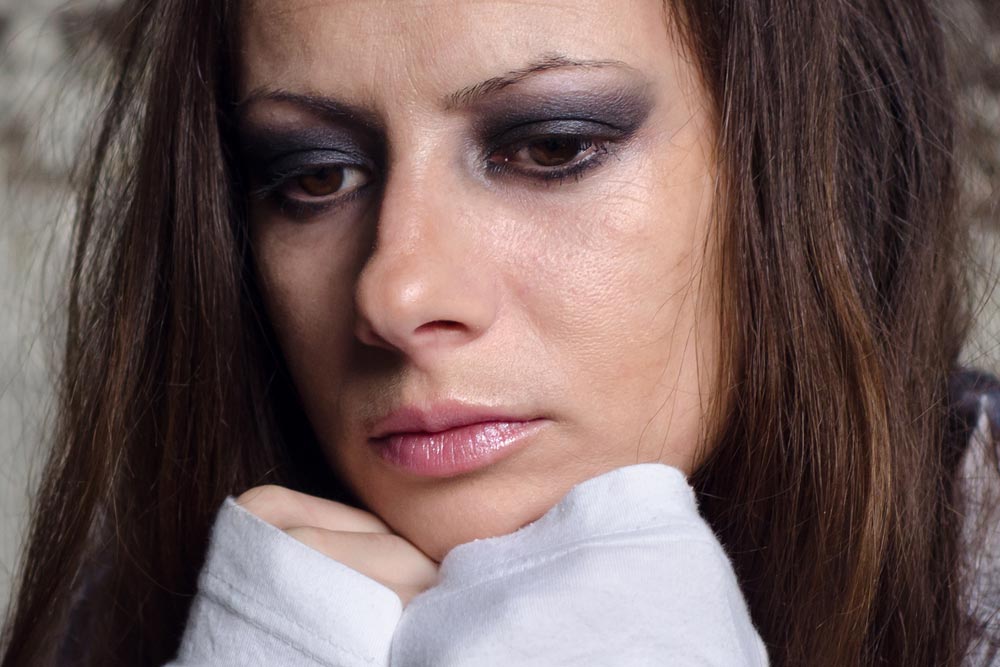 When Your Partner Chooses Drug Over You
When Your Partner Chooses Drug Over You
According to the Substance Abuse and Mental Services Administration (SAMSHA), 18.5 million Americans have a drug or alcohol use disorder. That means 1 in 25 Americans has a substance use disorder. And, many of those people have partners, lovers, spouses, and romantic relationships. Most of us, in that position of dating someone with a substance use disorder, struggle to help our loved ones. We continue to invest, we dump time and energy into relationships that are doomed to fail – simply because we are more invested than the people we love.
While it’s a sad truth when your partner chooses drugs over you, someone who is addicted to a substance will always choose that substance over someone they love. It doesn’t matter how long they’ve been with you or how much they love you. They have valid, chemical, and mental reasons to choose the substance. Without drug and alcohol treatment, they simply are not capable of doing anything else.
The Reward Circuit and Relationships
Most people have heard of the reward circuit. This is a connection of neurotransmitters and receptors in the brain. It’s most commonly linked to serotonin and dopamine production, uptake, and reabsorption. Here, the brain produces dopamine to encourage socially desirable behavior. So, for example, someone in a relationship will look forward to spending time with, helping, and doing things for their loved one. They’ll feel pleasure at spending time with that person, pleasure at helping them, pleasure at doing things with them. These emotional responses are a result of the reward circuit as it interacts with different parts of the brain.
When you take an intoxicating substance, you normally trigger the production of those same chemicals. Alcohol, methamphetamine, prescription pain pills, heroin, etc., all trigger dopamine and serotonin production alongside other neurotransmitters and hormones like GABBA, and opioids. So, when you consistently abuse a substance, your brain in consistently flooded with “artificial” dopamine and serotonin. Eventually, as a coping mechanism and to reduce damage to nerve endings, the brain produces less of those substances on its own. This increases tolerance, so the person has to take more of the substance to get the same effect, but it also affects how that person feels when they’re clean and sober. For example, they may have trouble feeling emotions as deeply, they may feel apathetic, they may simply not care. Or, they may care, but it might be difficult for them to prioritize that because their brain simply isn’t producing the chemicals it needs to for them to do that.
Essentially, the chemical tolerance induced by one results in reduced production and uptake of the hormones you need to feel good about and to invest in people you love. The longer your loved one abuses substances, the less they are physically capable of being the person in love with you. That doesn’t’ mean they don’t care, it just means they don’t get the physical sensation and reward that they used to. That often results in people drawing back, in people acting differently or coldly towards you, and in people prioritizing other things – like substance abuse.
Be Brave. Get Help.
We know what it’s like to have a new chance at life. We want you to feel that, too.
Call us: 1 954-688-5806
Seeking Behavior and Addictions
 Another important consideration is that substance use disorders are characterized by seeking behaviors. If someone is addicted to drugs or alcohol, they have a pathological disorder where rational decision-making is often replaced by the need to consume. Their choice to take and use drugs and alcohol is not a rationed out and measured decision like, say, buying a house or a new car. Instead, it’s a reflexive reaction that they do not think about, that they simply do. Like flinching away when something flies at your face, jumping back when you drop a knife, or reacting with pain slightly before you grab something you know is hot – it’s a reaction you simply cannot help.
Another important consideration is that substance use disorders are characterized by seeking behaviors. If someone is addicted to drugs or alcohol, they have a pathological disorder where rational decision-making is often replaced by the need to consume. Their choice to take and use drugs and alcohol is not a rationed out and measured decision like, say, buying a house or a new car. Instead, it’s a reflexive reaction that they do not think about, that they simply do. Like flinching away when something flies at your face, jumping back when you drop a knife, or reacting with pain slightly before you grab something you know is hot – it’s a reaction you simply cannot help.
What does that mean for you? It does not matter how much you sit down with your partner and discuss things with them. It does not matter if you ask them to quit. It does not matter if they try to quit and succeed for a few days. The seeking behavior and using are reflexive behavior. They automatically respond and use without thinking about it.
Dealing with that kind of learned behavior is difficult to impossible without professional help. In fact, you likely shouldn’t try to “fix” someone on your own. You can’t. Instead, that’s how you cause personal trauma, that’s how you become codependent, and that’s how you end up realizing you’ve spent years of your life on someone who isn’t physically capable of investing the same into you.
Can An Addict Love You?
Living with a drug addict is difficult. It’s also never good for you. No matter what your relationship is, drug addicts withdraw, they become cold, they become manipulative, and they often become emotionally and even physically abusive. None of those are necessarily true, but they are highly likely. Eventually, you cannot help your loved one to quit on their own. No amount of nagging, cajoling, or fighting will get them to put an addiction down. That normally leaves you with several choices:
Work to Get Your Loved One into Rehab
 Asking your loved one to go to rehab in Oreange County is likely your first choice. It won’t always succeed. Even if you invest in professional interventions, your loved one might not be ready to go. But, it’s important to try. If you can talk to your loved one about their substance use, that you’re concerned for them, and that you want them to get their life back – with or without you – and then offer the option of rehab and leave it open, they might take it. That might not be today, but they might eventually. Most people eventually move into rehab because of their social networks and connections, and as their partner, you have a lot of influence.
Asking your loved one to go to rehab in Oreange County is likely your first choice. It won’t always succeed. Even if you invest in professional interventions, your loved one might not be ready to go. But, it’s important to try. If you can talk to your loved one about their substance use, that you’re concerned for them, and that you want them to get their life back – with or without you – and then offer the option of rehab and leave it open, they might take it. That might not be today, but they might eventually. Most people eventually move into rehab because of their social networks and connections, and as their partner, you have a lot of influence.
- Be supportive not judgmental
- Be concerned about your partner, not what people think
- Stay calm and avoid being provoked into a fight
- Try to spend time listening and asking questions. Most people start out drug addictions in denial. Getting your loved one to even acknowledge they have a problem might require considerable effort.
Breaking Up With An Addict You Love
Spending a considerable amount of time investing in someone with a substance use disorder is bad for your mental health. It’s important to step back and to give yourself space. That means setting boundaries, deciding what is too much, and taking time out for yourself. It also means deciding if you should break up, if you want to stay together, and if you want to move out (if you’re living together). These decisions can all be intensely difficult. They can feel like giving up. But, eventually, your own mental health is important too. Living with someone who doesn’t’ fulfill responsibilities, who is reckless, who puts themselves and others in danger, or who uses funds for drugs and alcohol can be dangerous, stressful, and traumatic. It’s important to protect yourself as a first step – you can’t help anyone if you are falling apart.

 Matthew Beck B.A, M.A, LMFT
Matthew Beck B.A, M.A, LMFT 


